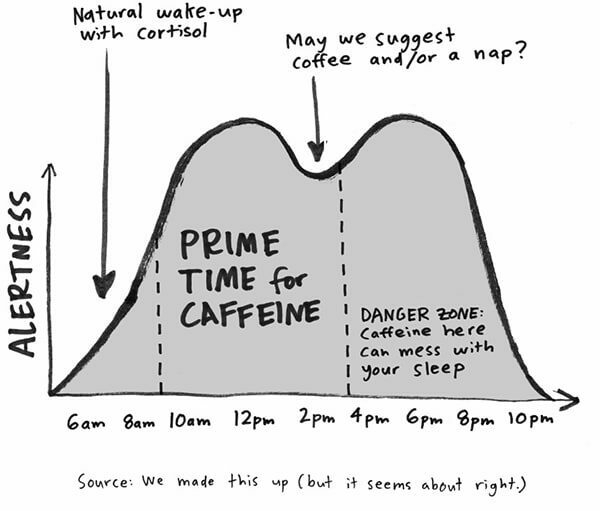There are many non-essential activities, moths of precious time, and it's worse to take an interest in irrelevant things than do nothing at all
I confess to not yet having read Elizabeth Emens' book The Art of Life Admin but it's definitely on my list to read this year. A recent BBC Worklife article cites the book and the concept of 'attention residue'. This is defined as multiple tasks and obligations which split our attention and reduce our overall performance.
“If you have attention residue, you are basically operating with part of your cognitive resources being busy, and that can have a wide range of impacts – you might not be as efficient in your work, you might not be as good a listener, you may get overwhelmed more easily, you might make errors, or struggle with decisions and your ability to process information.”
Sophie Leroy (associate professor of management at the University of Washington)
Attention residue makes us procrastinate at work, and affects our sleep. And sleep, as I explained in my (unfinished) audiobook #uppingyourgame: a practical guide to personal productivity (v2) is one of the three pillars of productivity.
The other two, if you're wondering, are exercise and nutrition. (While I know very talented people who don't exercise nor look after their bodies, I don't know any very productive people who aren't careful about keeping active and what they put into their bodies.)
Back to attention residue, and as the author of the BBC article points out, getting rid of life admin and the associated attention residue means you can enjoy life a little more, guilt-free:
In my case, the GYLIO experiment proved that self-care is less about carving out time to relax amid chaos, and more about removing to-dos from our crowded lives. With some life admin cleared away, I had a bubble bath and enjoyed the smug delight of a life – momentarily – in order.
Madeleine Dore
For me, sleep is extremely important As I learned when our children were very small, I really can't function properly if I have less than seven hours' sleep for two nights in a row.
As a result, I tend to go to bed early, usually before my wife, and definitely having ensured that I've avoided screens after 21:00. I'm definitely in bed by 22:00 and then read until about 22:30.
That means, as has been happening recently, if I am disturbed around 05:30, I can get up and carve out some quiet time to myself before the family awakens. Usually, though, I sleep until around 06:30 which means that, according to my smartband, I'm well-rested.
While we're on the subject of sleep and sleepiness, if you drink coffee first thing in the morning, you might want to rethink that approach:

I stopped drinking coffee about a year and a half ago, and instead drink around three cups of tea over the course of the day. Otherwise, I've found, it's very easy to use caffeine as an accelerator pedal and alcohol as a brakepedal.
Without productive routines it's easy to become overwhelmed. In an article I shared in last Friday's link roundup about communicating better at work, Michael Natkin, suggests that feeling overwhelmed is a common situation:
We’ve all been there. You’ve got so much on your plate that you don’t know where to start. Things that look like they will take fifteen minutes balloon into five-day poop-storms. Every item you cross off your list seems to spawn three more. The check engine light just went on in your car. And now your boss is chasing you down for an unexpected fire drill.
Michael Natkin
The temptation, when you're feeling overwhelmed, is to try and hide, to let no-one know that you're not coping. But that's a really dangerous approach, and the exact opposite of what you should do.
Instead, Natkin suggests an approach of 'over-communicating' which, he says, engages empathy and invites trust:
- Make a (prioritised) list
- Write an email to your line manager (and anyone else you should inform) giving realistic estimates of when your projects will be complete.
- Agree on a plan, and keep everyone updated
You should ask for feedback on your proposed course of action, he says, rather than giving it as a fait accompli.
I think this is a great strategy. What we all need to realise is that, usually, we were chosen for the position we're in, and therefore we should use that to fuel our confidence and self-esteem. Communicating a plan is always better than hiding.
Finally, a word about admin. Some people absolutely love spreadsheets, get a little thrill when they reconcile transactions, and don't mind filling in forms. If, like me, that sounds like the exact opposite of the things I enjoy doing, then you need some admin support.
You can pay for it, you can ask your employer to provide it, or you can call in favours. Either way, without it, you're going to eventually drown in life admin at home and work admin at the office.
My only bit of advice would be to really set your stall out for this. Don't whine or complain about your workload; instead, explain the situation and the impact of admin on your productivity. Put it in financial terms, if necessary.
What are your tips around "attention residue" and what to do when feeling overwhelmed?
Enjoy this? Sign up for the weekly roundup and/or become a supporter!
Image by Max Kleinen. Quotation-as-title by Baltasar Gracián